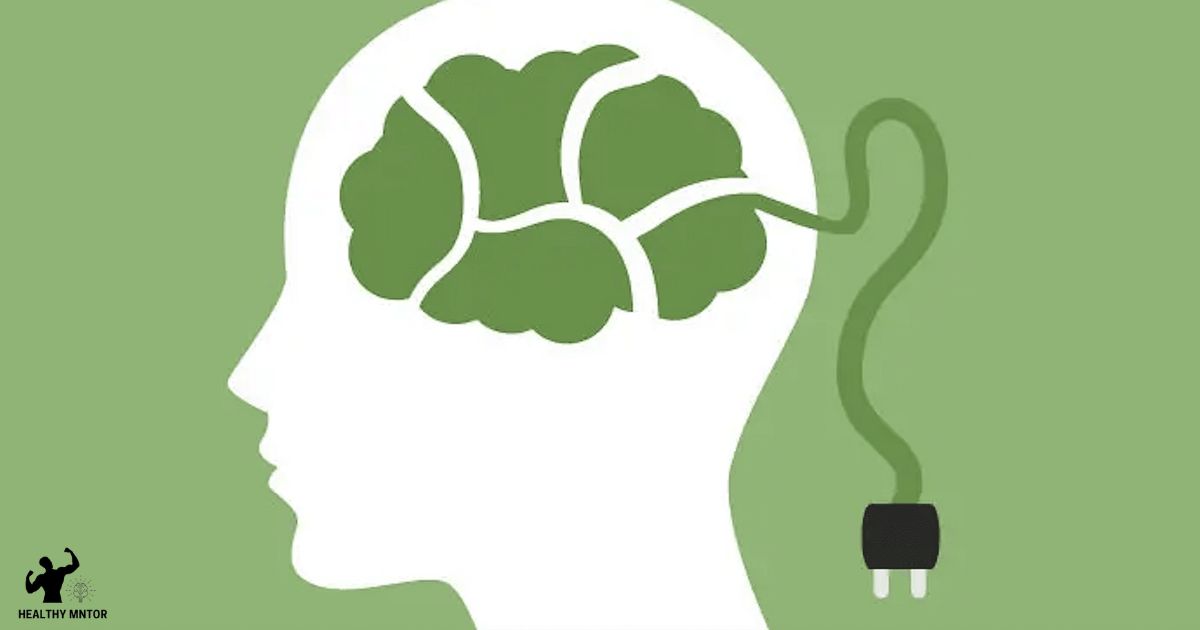According to recent research, positive mental health is influenced by various factors such as physical exercise, material possessions, social media, career success, external validation, religion, and financial stability. However, not all of these factors hold equal importance in promoting positive mental well-being. In this article, we will explore which of these elements may not play a significant role in fostering positive mental health. By examining evidence-based research, we aim to provide valuable insights for individuals seeking to enhance their overall mental well-being.
Key Takeaways
- Pursuit of material possessions as a means of achieving happiness is not important for positive mental health.
- Focusing on experiences, personal growth, and meaningful connections contributes more to overall mental well-being than material wealth and possessions.
- Active engagement with social media in a mindful and positive manner is important for promoting positive mental health.
- Career success alone is not the sole determinant of mental well-being; a holistic approach considering various aspects of life is essential.
The Role of Physical Exercise in Mental Health
Regular physical exercise is a crucial component of maintaining good mental health and well-being. Engaging in consistent physical activity is closely associated with improvements in mental health, and it plays a significant role in enhancing overall mood and self-esteem. Furthermore, exercise is known to boost the production of endorphins, which are natural chemicals in the brain that serve as painkillers and mood enhancers.
In addition to its mood-enhancing effects, physical activity can also help individuals manage symptoms of depression and anxiety. It contributes to better regulation of sleep patterns, lowers stress levels, and improves cognitive function. Moreover, scientific studies have suggested that incorporating exercise into one’s daily routine may even contribute to the prevention of mental health disorders such as dementia and Alzheimer’s disease.
In light of these findings, it becomes evident that integrating regular physical exercise into your daily routine can serve as a potent tool for promoting positive mental health and overall well-being. When combined with a health plan designed to support both physical and mental wellness, the benefits of exercise can be maximized, leading to a happier and healthier life.
The Impact of Material Possessions on Mental Well-Being
While material possessions can provide temporary satisfaction, their long-term impact on mental well-being is often limited. Research suggests that the pursuit of material possessions as a means of achieving happiness and fulfillment is ultimately futile. Studies have found that individuals who prioritize material wealth and possessions tend to experience higher levels of stress, anxiety, and dissatisfaction with life. This is because material possessions are often fleeting and subject to comparison and social pressures. In contrast, cultivating strong relationships, engaging in meaningful activities, and practicing gratitude have been shown to have more significant and lasting effects on mental well-being. Therefore, it is important to recognize that the pursuit of material possessions alone is not a reliable path to long-term happiness and fulfillment. Instead, focusing on experiences, personal growth, and meaningful connections can contribute more significantly to overall mental well-being.
The Significance of Social Media in Promoting Positive Mental Health
The effectiveness of social media in promoting positive mental health relies on individuals’ active engagement and the platforms’ ability to provide a supportive and inclusive online community. Research suggests that social media can have both positive and negative effects on mental health. On one hand, it can provide a platform for individuals to connect with others, share experiences, and receive support. This sense of belonging and social support can contribute to improved mental well-being. On the other hand, social media can also expose individuals to negative content, cyberbullying, and feelings of social comparison, which can negatively impact mental health. Therefore, it is important for individuals to actively engage with social media in a mindful and positive manner, while platforms should prioritize creating a safe and inclusive online environment for their users.
The Influence of Career Success on Mental Well-Being
Several studies have shown that achieving career success and maintaining a healthy work-life balance can significantly enhance mental well-being. Professionals who find fulfillment and success in their chosen careers often experience increased self-esteem, a sense of purpose, and a greater overall satisfaction with life. Additionally, a healthy work-life balance allows individuals to have time for personal relationships, hobbies, and self-care, which can further contribute to their mental well-being. However, it is important to note that career success alone is not the sole determinant of mental well-being. Other factors, such as social support, physical health, and a positive mindset, also play crucial roles. Moreover, the definition of career success may vary from person to person, as it is subjective and influenced by individual values and aspirations. Ultimately, a holistic approach that considers various aspects of life is essential for maintaining positive mental health.
The Importance of External Validation for Mental Health
Research has consistently demonstrated that seeking and receiving external validation from trusted sources can greatly contribute to an individual’s mental well-being. External validation refers to the recognition, approval, and support received from others, such as friends, family, or mentors. When individuals receive validation, it fulfills their innate need for social connection, acceptance, and belonging. This validation helps to validate their emotions, experiences, and self-worth, leading to increased self-esteem and overall mental well-being. Moreover, external validation can provide individuals with a sense of reassurance and confidence in their abilities and decisions. It acts as a buffer against self-doubt and can foster a positive mindset. However, while external validation is important, it is also essential to explore the role of religion or spirituality in mental well-being.
The Role of Religion or Spirituality in Mental Well-Being
One aspect that deserves examination is the potential influence of individuals’ religious or spiritual beliefs on their mental well-being. Research has shown that religion and spirituality can have both positive and negative effects on mental health. Some potential influences include:
- Positive Effects:
- Increased social support: Religious or spiritual communities often provide a sense of belonging and support, which can buffer against feelings of loneliness and isolation.
- Coping mechanisms: Beliefs in a higher power or divine intervention can provide comfort and hope during difficult times, aiding in stress management and resilience.
- Negative Effects:
- Guilt and shame: Strict religious beliefs or practices that emphasize sin, punishment, or moral judgment can lead to feelings of guilt or shame, which can negatively impact mental well-being.
- Dogmatism and intolerance: Extreme religious beliefs can contribute to rigid thinking, intolerance, and even prejudice, which can hinder social relationships and mental health.
It is important to recognize the complexity and individual variability in how religion and spirituality can impact mental well-being.
The Impact of Financial Stability on Mental Health
Financial stability plays a significant role in determining the mental health outcomes of individuals, as both the lack of and excessive accumulation of wealth can have detrimental effects. Research has shown that financial insecurity is associated with higher levels of stress, anxiety, and depression. The constant worry about meeting basic needs, such as housing, food, and healthcare, can lead to chronic stress and negatively impact mental well-being. On the other hand, excessive wealth can also contribute to mental health issues, such as increased risk of substance abuse, feelings of isolation, and a lack of purpose or motivation. Striking a balance between financial stability and overall well-being is crucial for maintaining positive mental health. Access to resources, financial education, and support systems are key factors that can positively influence an individual’s mental health in relation to their financial stability.
Frequently Asked Questions
How Does Physical Exercise Affect Mental Health?
Physical exercise has a profound impact on mental health. Numerous studies demonstrate that regular exercise can reduce symptoms of depression and anxiety, improve mood, boost self-esteem, and enhance cognitive function, making it a crucial factor for positive mental well-being.
What Are Some Ways Material Possessions Can Impact Mental Well-Being?
Material possessions can impact mental well-being in various ways. They can provide a sense of security, self-esteem, and identity. However, it is important to note that relying solely on material possessions for happiness can be detrimental to positive mental health.
How Does Social Media Play a Role in Promoting Positive Mental Health?
Social media plays a role in promoting positive mental health by facilitating social connections, fostering a sense of belonging, and providing access to mental health resources and support.
Can Career Success Influence Mental Well-Being?
Career success can significantly influence mental well-being. A fulfilling and rewarding career can provide a sense of purpose, self-esteem, and financial stability, all of which are crucial for positive mental health.
How Does External Validation Affect Mental Health?
External validation, while often sought after, can have a detrimental effect on mental health. Relying on others’ opinions and approval for self-worth can lead to feelings of inadequacy, anxiety, and a constant need for validation.
Conclusion
In conclusion, it is evident that all of the factors mentioned, such as physical exercise, material possessions, social media, career success, external validation, religion or spirituality, and financial stability, play significant roles in promoting positive mental health. Each of these factors contributes to overall well-being and can have a profound impact on an individual’s mental state. It is important to recognize and address these aspects of life in order to cultivate and maintain positive mental health. As the saying goes, “A sound mind in a sound body.” ‘A sound mind in a sound body’ is the foundation for a fulfilling and joyful life.







